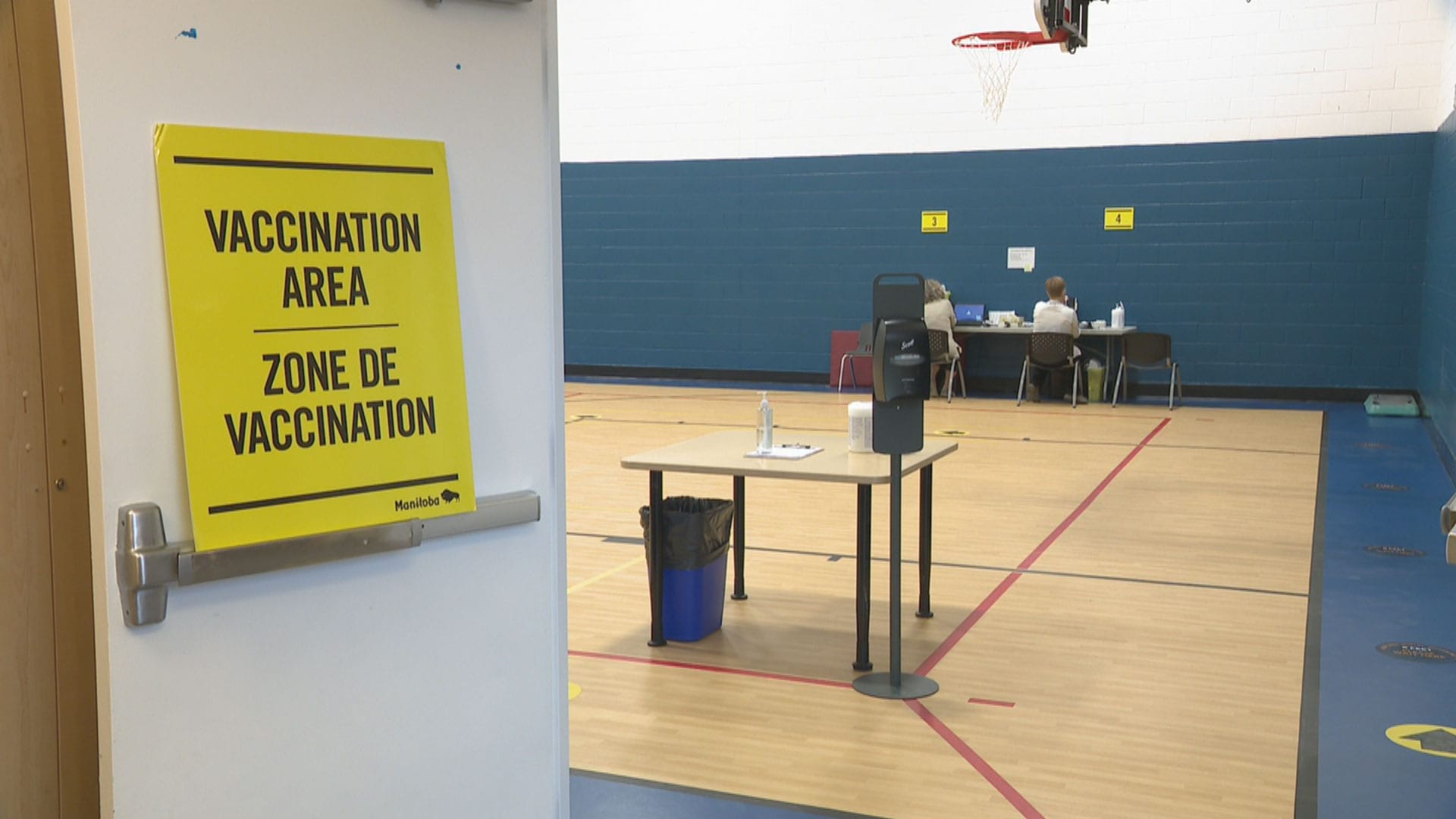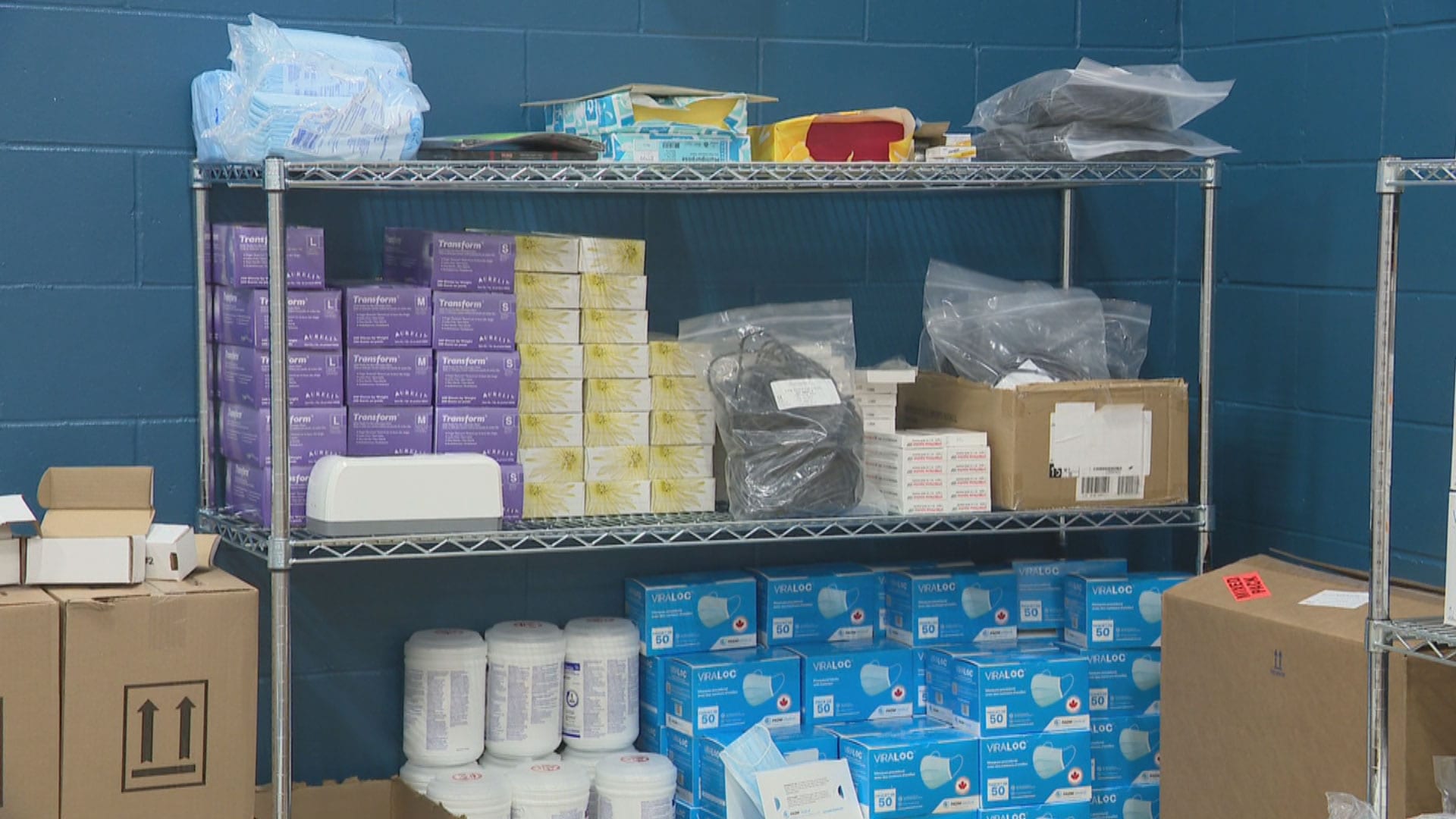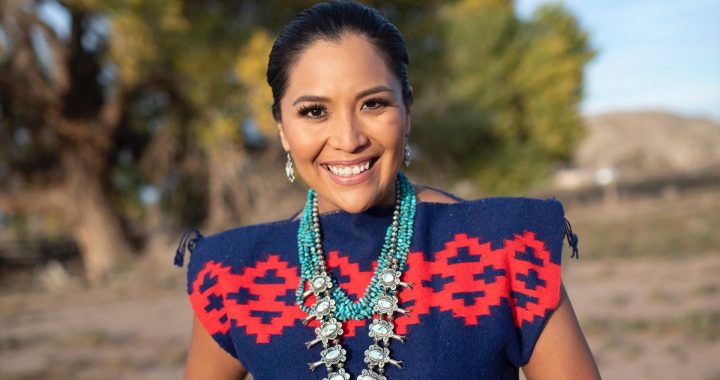Each day at the Ma Mawi Wi Chi Itata centre’s vaccine clinic begins in a good way with the smudging of the day’s vaccine supply and a morning prayer with the dozens of employees who work there.
Ma Mawi is one of the community organizations in the province operating an urban Indigenous immunization clinic.
Marion McKenzie, operations manager for Ma Mawi, told APTN News it’s important staff and immunizers at the site start each day off right.
“It can be a little bit challenging, it can be a little bit tiring and it is really emotionally draining when you come through and you see all these community members coming to get vaccinated,” said McKenzie of the urban vaccine clinics.
“We just know that we’re helping to create a stronger, healthier bond and circle around our community.”
The clinic opened its doors at the end of April, and since then they have administered approximately 3,000 doses.
The clinic has a goal to fully vaccinate 23,000 urban Indigenous community members by the end of September.

While getting needles in the arms of a community that has been disproportionately affected by the virus is a high priority, McKenzie said providing a safe space for this to take place has been the most important endeavour.
“The biggest piece is that when they walk in here they don’t feel they’re walking into a clinic, and really the only clinical part about this entire centre is literally when you sit in that chair to get the needle in your arm otherwise it’s very much a warm, welcoming environment for community,” she said.
This includes offering medicine bundles and having a wellness team on hand to help people with filling out forms or accessing other services.
The clinic is a place where traditional and Western medicine come together.
“While we have a clinical team that is responsible for following those clinical procedures, we have a wellness team that’s really responsible for ensuring that everything is done in a good way. We’ve been so lucky that we’ve been able to marry these two together,” said McKenzie.
The clinic has seen a large number of Elders visit to get their vaccine instead of going to one of the super sites in the city.
This is because vaccine hesitancy is still relevant in the community, said McKenzie.
But she adds for some it comes down to prior experiences within the Western healthcare system.
This is why communication with a trusted organization is key to addressing concerns Indigenous peoples may have.
Across the city, the Manitoba Inuit Association (MIA) is preparing for their second vaccine clinic.
The organization hosted their first one for Inuit last month.
Janet Kanayok, director of programs and services at MIA, said the first one was a success.
“[Attendees] felt comfortable that they were greeted by their fellow Inuit community. We had a [bigger] turnout than what we thought. We had inoculated 126 people throughout the day so we were quite pleased with that,” said Kanayok.

She adds it was important for them to offer services relevant to the community they serve, including transportation, child care and translations in Inuktitut.
“We wanted to be sure that as many people come out that’s able to. They they’re not scared or feel forced into getting a vaccine,” said Kanayok.
“We wanted to make sure that our community members were well informed with factual information. Steering clear of conspiracy theories online.”
Kanayok believes offering a culturally safe space has eased some of those apprehensions.
The associated is hosting another clinic on May 25.
Urban vaccine clinics are also operating in Thompson, Brandon and Portage la Prairie.
Currently in the province all Indigenous peoples over the age of 18 are eligible to receive the vaccine.









